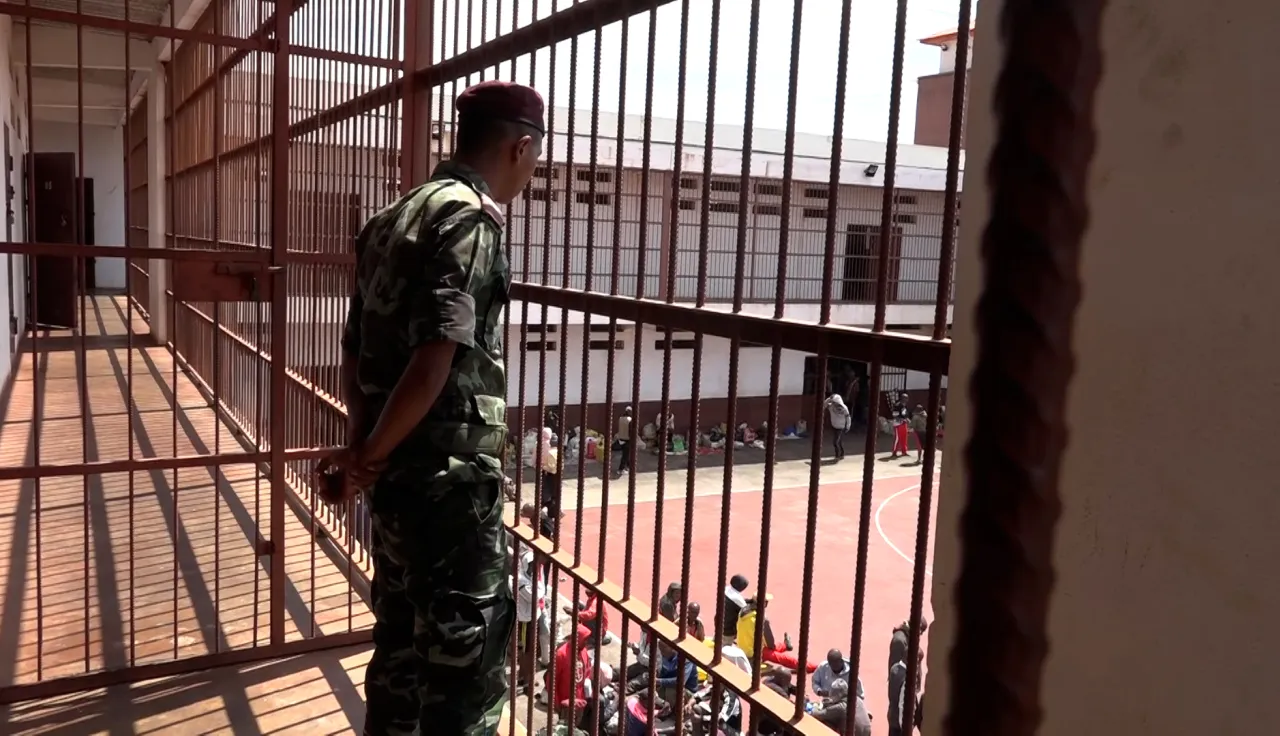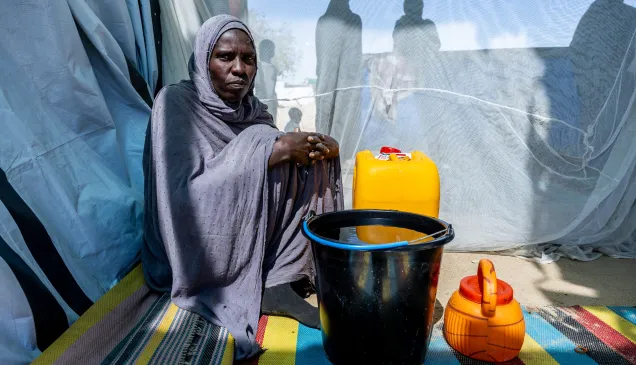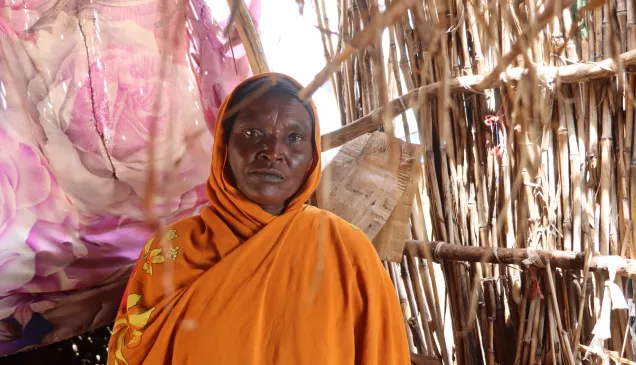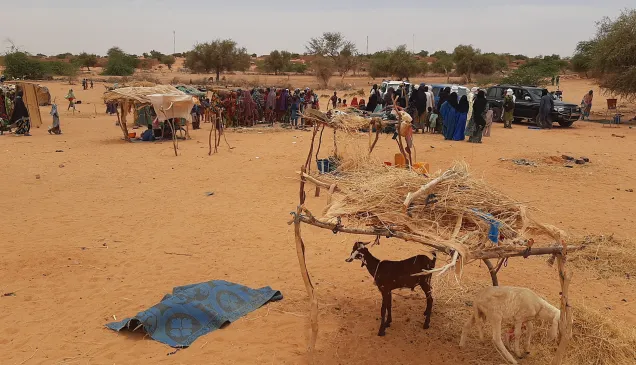Prisons in Africa need to be better managed in order to ensure decent conditions of detention

Prison overcrowding is still rife in Africa. According to a specialist institute, African prisons have an occupancy rate of 170%, which leads to many problems, such as poor hygiene conditions, limited access to drinking water and inadequate ventilation. In overcrowded prisons, people deprived of their liberty sleep in poor conditions, spend less time outside and do very few activities.
In many African countries, the prison authorities have to manage places of detention that are sometimes very old and are often situated in areas that have become very built up over time. It can be incredibly difficult for the authorities to take sufficient care of these facilities and therefore to maintain dignified conditions of detention.
Aliou Ciss, president of the African Correctional Services Association (ACSA), explains why this is such a challenge: “The problem of overcrowding is exacerbated by the huge rates of population growth and inefficient judicial systems in these countries, which puts enormous pressure on prisons and essential services.” This includes access to drinking water.
The example of Madagascar
Harena Abeline Rahantarilalao, chief inspector of the Madagascan prison service, talks to us about Imerintsiatosika prison, a modern, well-ventilated and clean facility that is 30 kilometres from Antananarivo, the capital city of Madagascar.
A few years ago, Madagascan prisons were holding six or seven times more prisoners than they could officially accommodate. “In the north of the country, a prison designed for 300 people was housing almost 2,200 detainees,” Ms Rahantarilalao explains, “and overcrowding was also a problem in eastern Madagascar and at the Maison Centrale in Antananarivo. That’s why we have designed new prisons.”
Imerintsiatosika prison is a good example of this. Another detainee shares their experience of being detained there: “Doing exercise while in prison keeps your heart and your mind healthy. Having space makes it easier to cope with being detained. If you’re in a cramped environment, you cannot exercise or do any other leisure activities, and all you think about is the fact that you’re in prison.”
Promoting social reintegration
Depriving people of their liberty should always be a last resort. When prison authorities replace old prisons, they must ensure that the new facilities not only respect the dignity of people deprived of their liberty, but also promote their rehabilitation and maintain their connection to society. This was not really the case a hundred years ago, when places of detention were mainly used to punish people by locking them up. At the same time, there will always be a need for prisons, whether they are old or new, in order to provide the best possible conditions of detention for detainees.
According to Maria Teresa Manuela, commissioner and independent expert on prisons, conditions of detention and policing in Africa, “prisons should focus on rehabilitation, rather than on inhumane punishments. These places must be designed, planned and maintained in a way that protects detainees’ dignity and promotes their reintegration back into society.”
The ICRC provides support to African countries
In response to these challenges and needs, at the beginning of October 2024, the International Committee of the Red Cross (ICRC) and the Madagascan Ministry of Justice organized a workshop on prisons that brought together 14 French-speaking African countries. This workshop follows on from the workshops that have taken place every two years in different African capital cities since 2017.
“The aim of the workshop is to give people from the prison services of different African countries the opportunity to share their experiences with one another, as well as with ICRC experts,” Mr Ciss explains. “We hope they learn as much as possible and then try to implement what they’ve learnt when they return to their countries. Whether that be in terms of improving rehabilitation or building new prisons, we hope they take on board all the good practices that they learn here.”
Unfortunately, existing prisons are often not well looked after. For example, it is common to find damaged equipment that has not been repaired and blocked or dirty drains, which lead to a lack of water and poor hygiene conditions, putting detainees’ health at risk. Humane conditions of detention must be preserved and prison maintenance is an essential part of this. Authorities need to find alternatives to detention and, as a last resort, they must replace run-down facilities to ensure detainees are treated humanely.
“We cannot do everything at once, but it is clear to see that we are gradually making progress,” said Ms Rahantarilalao, following the visit to the Imerintsiatosika prison.
Developing skills to better manage prisons in Africa
According to data shared by participants of previous workshops, nearly 500 new prisons have been built across 25 African countries (accounting for 65% of the African prison population) over the last ten years or are scheduled to be built in the next five years. This represents nearly 30% of existing prisons. However, these countries generally do not have standards in place or architects with expertise in prison design and therefore authorities are often forced to call on foreign experts.
To ensure that prisons are well suited to the culture, climate and remedial ambitions of the countries in which they are built, expertise must be developed on a local level so that these prisons can be properly designed, built and maintained.
For example, thanks to workshops like the one held in Madagascar, Niger has written its own norms and standards for detention, covering many aspects, such as accommodation, and Burkina Faso and Côte d'Ivoire have drawn up a standard framework to be used for building prisons and related infrastructure.
A few years ago, the ICRC published Towards Humane Prisons: A Principled and Participatory Approach to Prison Planning and Design, which provides guiding principles for any individual or entity that is involved in planning, designing or building prisons.
Following the workshop in Madagascar, the ICRC continued to support the prison authorities in several African countries and teamed up with ACSA to publish the Prison Maintenance Guide. The two publications mentioned here complement each other and are intended to be used by the prison authorities in Africa.



